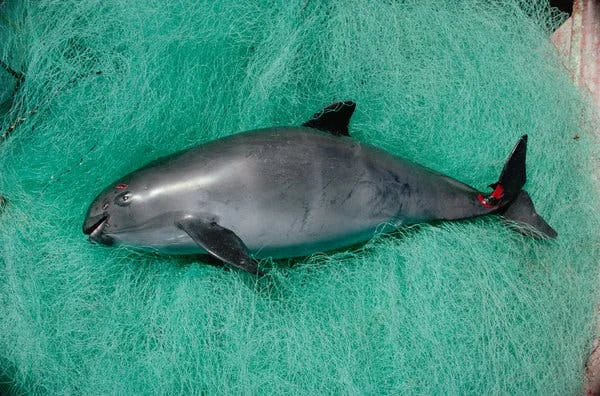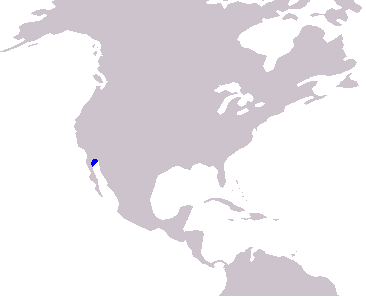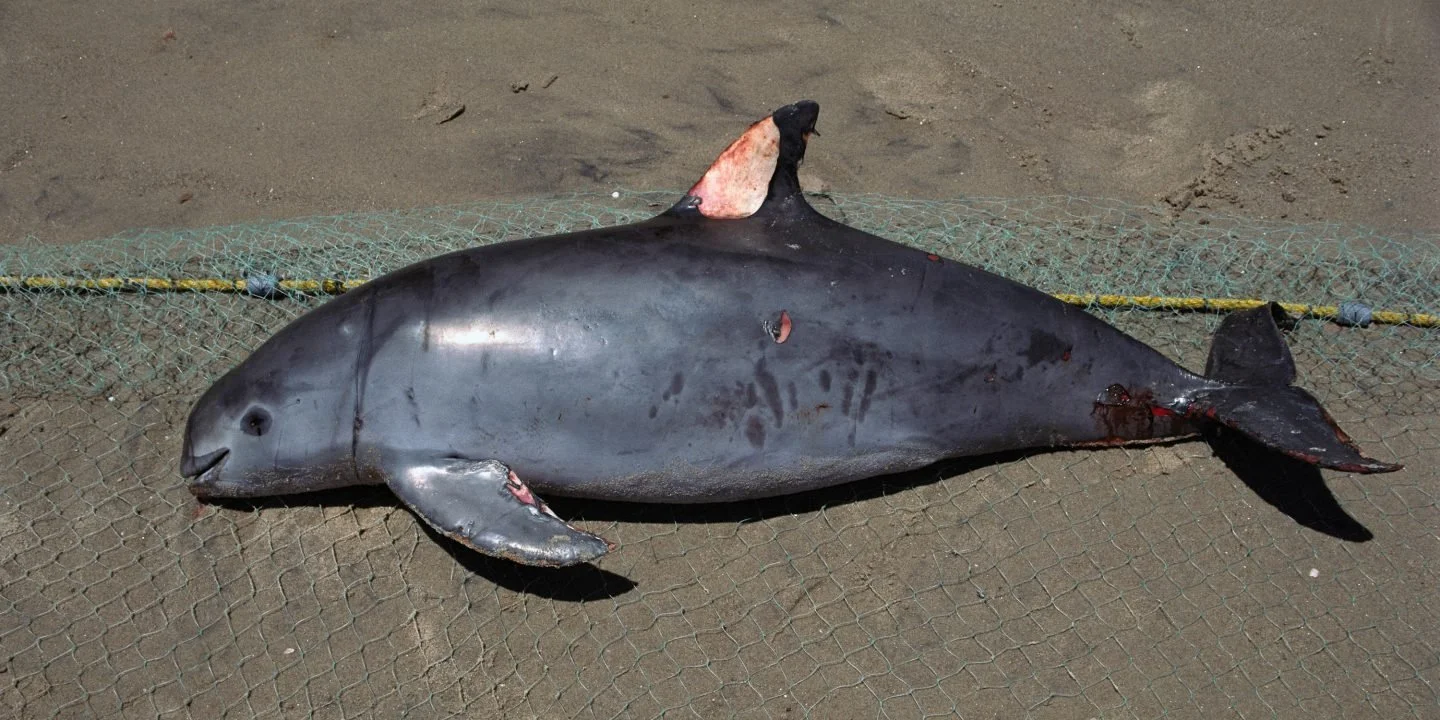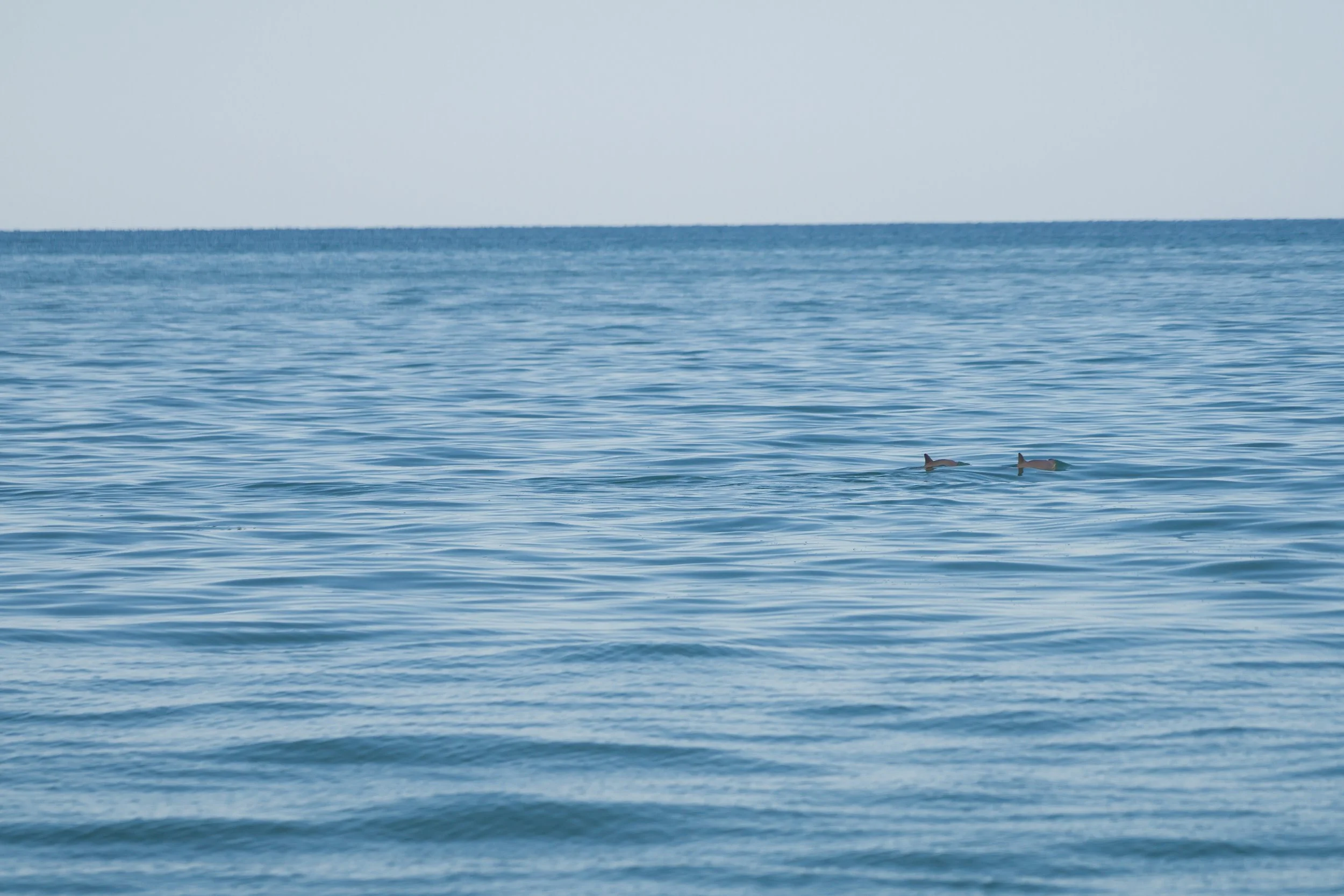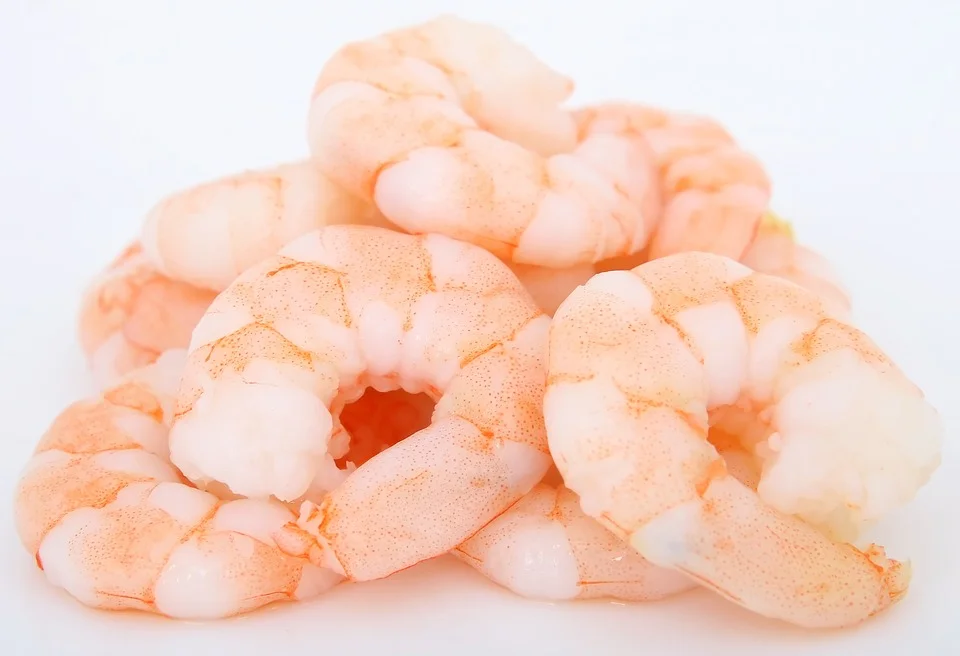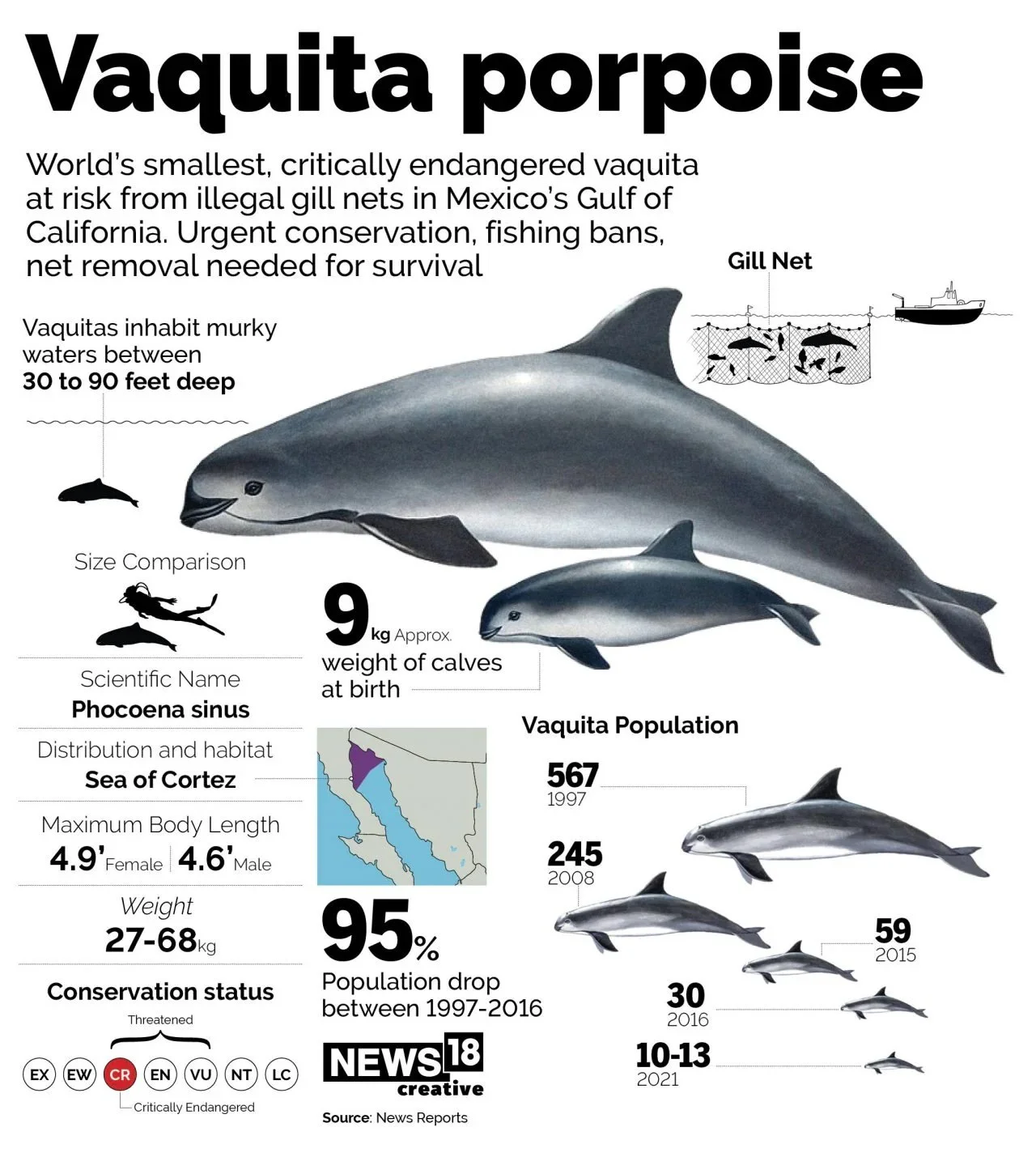SAVE THE VAQUITA!
FEWER THAN 10 REMAIN IN THE WILD!!!!
IT’S THE SMALLEST PORPOISE & MOST ENDANGERED MARINE MAMMAL IN THE WORLD!
There is only one small population in the world of vaquita porpoises. If this species goes extinct, the entire vaquita porpoise population will be gone forever!
What is a vaquita?
The vaquita is a small porpoise found no where else in the world except for a compact area in the extreme northern Sea of Cortez (Gulf of California), near Baja California, in Mexico. Their breeding and foraging area is very small, about the size of metropolitan Los Angeles.
The vaquita has only been known to science since 1958. This marine mammals is one of only seven species of true porpoises in the world. It is a unique species, with a body shape and color pattern unlike that of any other porpoise or marine mammal in the modern world.
Vaquitas tend to live in shallow and turbid or murky waters, because these waters have a tendency to have a high nutrient content. This in turn attracts small fish, squid, shrimp, and other crustaceans on which the vaquitas feed.
Vaquita means “little cow” in Spanish.
Why is the Vaquita so endangered?
The vaquita is found only in a small area of the world. Once this population of marine mammals goes extinct, the entire species goes extinct.
The primary threat to vaquitas is entanglement in fishing gear.
The Vaquita’s territory overlaps with commercial fisheries in Mexico that catch shrimp, curvina, chano and sierra, as well as illegal fishing operations that targets the equally endangered totoaba fish.
In the last few decades, the vaquita population has decreased by about 8 to 19 percent per year, as gill nets set for fish and shrimp kill more porpoises than are born each year.
Female vaquita’s only give birth every other year to one young. Calves are born in the spring (March/April). Vaquitas live to be about 20 years old.
If rapid progress is not made, the vaquita porpoise will be extinct.
This dangerous situation has been recognized by the IUCN (International Union for the Conservation of Nature), which lists the vaquita as Critically Endangered. Both the United States and Mexico list the vaquita as an Endangered Species.
Can the Vaquita be saved?
YES!
There is still hope for the vaquita porpoise, but time is quickly running out. Only a handful are still known to science to survive. The good news is that the vaquita’s habitat is clean and healthy, water quality in the Gulf of California is good.
The problem is that gill nets from commercial fishing are entangling and killing vaquitas.
Stop this and the vaquita can rebound and be saved.
Vaquitas can only live in the wild, not in zoos or aquariums. Vaquitas have never been held in an any aquarium, and they do not survive in captivity.
What can people in New Jersey do to help save the vaquita?
**Please Boycott Shrimp from Mexico!**
Shrimp has been the most consumed seafood in the United States since 2001, followed by canned tuna and salmon.
The demand for shrimp in the United States is high. On average, one billion pounds of shrimp are eaten every year by Americans.
No one country can satisfy this huge desire by the American people for shrimp, especially inexpensive or cheap shrimp. As a result, the United States imports massive amounts (over 90%) of shrimp every year from developing countries, including Mexico.
WHY SHOULD PEOPLE BOYCOTT MEXICAN SHRIMP?
Mexican shrimp is an important and lucrative export product to the United States, which is the leading buyer. In 2016, the United States imported millions of tons of shrimp from Mexico valued at more than $274 million. The shrimp industry played a primary role in the vaquita's decline over several decades, and a boycott of all Mexican shrimp is urgently required to compel the industry to help save the animal now. A boycott will encourage the industry to demand that the Mexican government significantly expand its efforts to save the vaquita. While not all Mexican shrimp products come from the Gulf of California, only by boycotting all Mexican shrimp is the industry likely to help save the vaquita at a rapid pace.
HOW DO I KNOW IF SHRIMP IN MY SUPERMARKET OR ON A RESTAURANT MENU IS FROM MEXICO?
Seafood products sold in supermarkets must include the country of origin on the product packaging. If you can't find this information on the packaging, ask store personnel to determine the country of origin on the product. In a restaurant, ask your server about the country of origin of any shrimp item on the menu and, if they won't or can't answer your question, then order another menu item. If you see shrimp at a workplace or college cafeteria, please ask the food service manager about the origin of the product. Refer store personnel, servers, and service managers to the BoycottMexicanShrimp.com website if they have questions.
What Else Can I Do To Save The Vaquita Porpoise?
Tell all your friends! It is very important that everybody knows about the vaquita and what is happening in Mexico. Tell everyone who will listen about the vaquita’s plight and don’t stop until the vaquita is safe!
Support the Gulf of California! You can help establish tourism around the Sea of Cortez as an alternative to fishing by choosing the area as your holiday destination! There are lots of socioeconomic problems in Mexico, so your tourism dollars can do some good and help transform the region.
***Tell the Mexican government to step up its actions!
Watch the Sea of Shadows documentary to learn more.
In award-winning SEA OF SHADOWS, a multinational team of scientists, activists, journalists and undercover agents go up against drug cartels and illegal traf...
Learn more about the plight of the Vaquita by reading:
Vaquita: Science, Politics, and Crime in the Sea of Cortez, by Brooke Bessesen, Island Press, 2018

